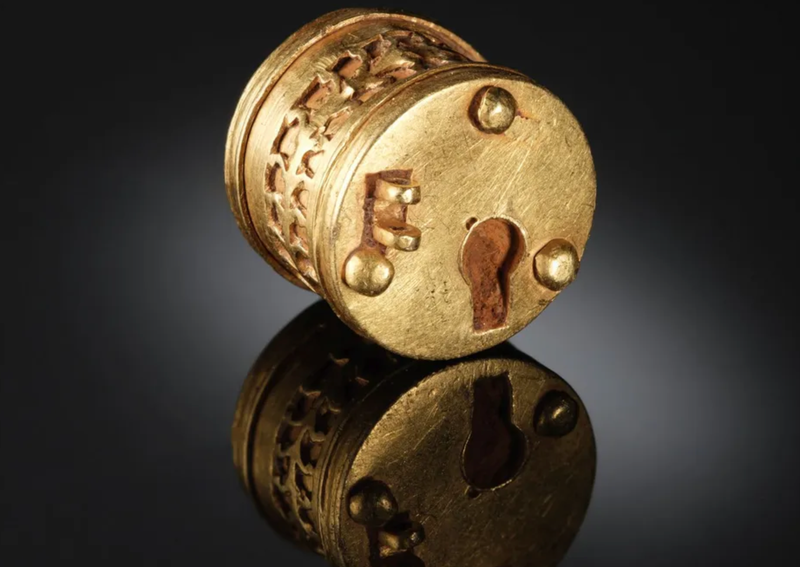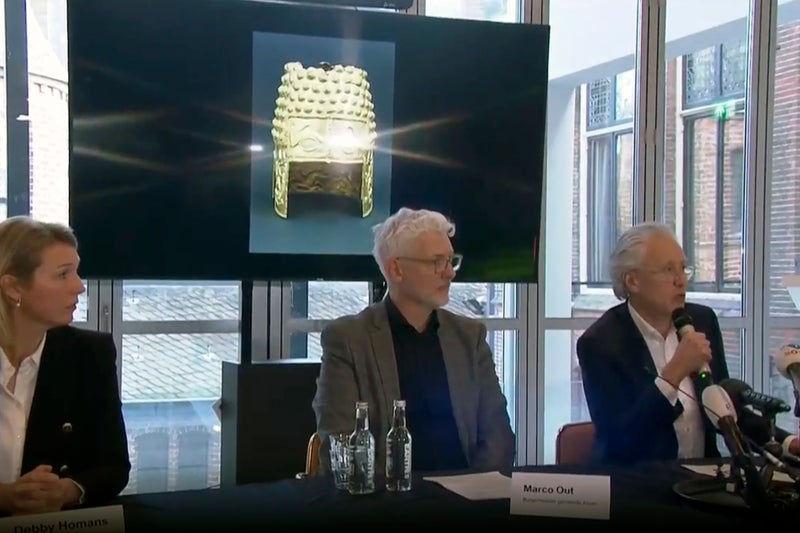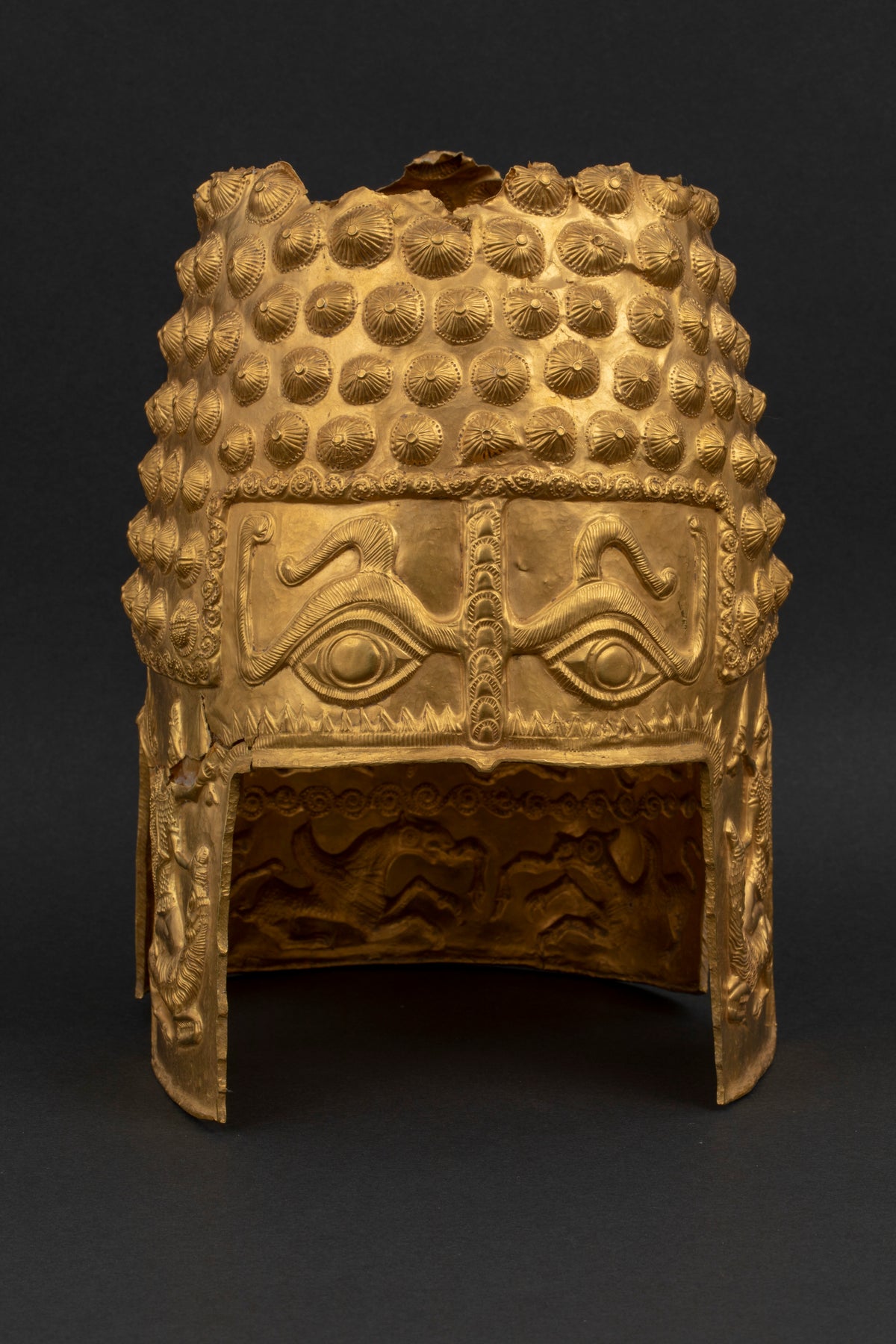Metal detectorist discovers unique golden artefact from Roman-era Germany: 'I could hardly believe it‘
Metal detectorist discovers unique golden artefact from Roman-era Germany: 'I could hardly believe it‘
Share:
Researchers unsure why such an intricate artefact was made. A metal detectorist has found a unique 1,600-year-old tiny Roman padlock in Germany, shedding light on miniature craftsmanship in the ancient civilisation. The padlock, measuring just over a centimetre in size, was found in the northwestern region of Westphalia.
![[Replica of the Roman lock]](https://static.independent.co.uk/2025/01/30/4/35/Replica-of-the-Roman-lock.png)
"The golden miniature box lock is completely unique in Europe," archaeologist Michael Rind from the Westphalia-Lippe Regional Association said. Researchers found the artefact was a miniature version of locks used across Rome in the third and fourth centuries, hinting at trade between the empire and northern Germany during this time.
"I could hardly believe it when I held the find in my hand because such Roman locks are usually much larger and are made of iron or bronze parts,” the metal detectorist, Constantin Fried, said. The lock’s remains included only its cylindrical component, but in ancient times it likely had a key and a chain as well.
"Someone had obviously poked around in the lock at the time, probably to break it open or remove a blockage," Mr Fried said. Initial restoration work revealed that the central cylinder was made of iron. More detailed CT scans, utilising neutrons instead of the conventional X rays, found the lock’s inner mechanism included a spring, bolt, baseplate, guide rail, and a pin.






















